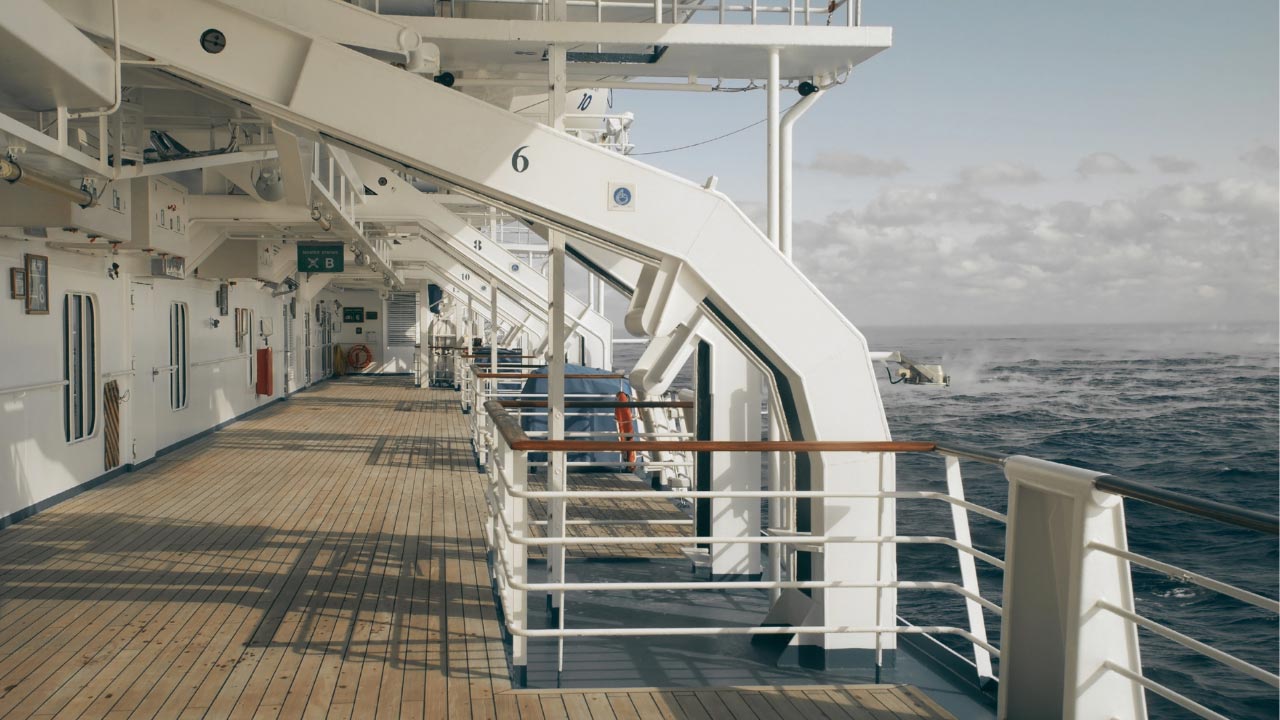
The Benefits of Public Health Training
 By David Best, Director of Public Health
By David Best, Director of Public Health
The role of a Public Health Officer (PHO) onboard a cruise ship these days must feel a little like being the Mandalorian. In case you're not familiar with the protagonist of the streaming, and captivating, television series, the Mandalorian is a fictional character from the Star Wars franchise. He’s a lone bounty hunter trained as a warrior, rarely seen without his silver, beskar helmet, which he is forbidden by creed to remove in public. While cruise lines don't require their PHOs to always wear a helmet, it is conventionally a lone position, and considering the present hazards of the job, donning other forms of Personal Protective Equipment (PPE) are commonplace.
Working as a PHO within the maritime industry is a demanding position, and not everyone is suited to picking up the mantle of being a "Mandalorian". The key challenge for the cruise industry is finding suitable and qualified individuals to take on the role, and effectively training these public health warriors to become advocates of change, rather than victims of it.
The Rise of the PHO

Despite the immeasurable toll the COVID-19 pandemic has had on society, one of its positive effects has been the reinforcement of the importance of public health, not just as a priority, but as a prerequisite. Subsequently, over the last 12-18 months many cruise lines have assigned a dedicated PHO to each ship, and regardless of title (e.g., Infection Control Officer, Sanitation Officer, or otherwise), the goal is generally the same: to oversee the implementation of public health measures onboard.
Recently advertised job descriptions found on most cruise companies’ websites require PHOs to have some form of educational background in Environmental Health. Understanding communicable disease prevention theory is undoubtedly a benefit, however it would be unwise to discount the significance that other factors have on the ultimate success of this strategic endeavor. Maritime experience, and importantly, awareness of the complexities associated with cruise ship public health requirements are essential considerations in both the hiring and future employee development processes.
Experience cannot be manufactured; it grows organically over time. Providing a supportive environment where lessons can be learned from mistakes made is a crucial component for the growth of any individual in an organization. In order to learn from mistakes, there must be a platform where guidance, mentoring, and training are readily available. Being a Public Health Officer is essentially a solitary position onboard; it should be clear where responsibility lies for providing such foundations. Sending individuals onboard who have no prior maritime or cruise ship public health experience and expecting them to learn on the job without proper support, is not a recipe for success.
Public Health Training is the Way

Training is central to building an effective public health team. When scrutinizing the costs of implementing company-wide training, the answer to the question, "How important is training?" should be always be the same: absolutely critical. The obvious consequence of training lies in the opportunity to strengthen your employees’ knowledge, understanding and skills, benefiting both individual and organizational performance by equipping crew with the tools they need to do their jobs effectively. However, beyond the obvious, there are additional, equally important reasons.
Empowerment through training results in committed crew members who excel in decision-making skills and enthusiasm, increasing job satisfaction and reducing staff turnover. Unlike the Mandalorian, Public Health Officers are not bounty hunters. With the increase in available positions industry wide, training is essential in establishing a productive and positive working environment, and thus has an encouraging knock-on effect to company culture. Salary alone is unlikely to be the only factor influencing employee retention.
On top of everything else they are responsible for, PHOs must be role models onboard. Equipping them with the necessary leadership skills will help set the required standards for your operation. As leadership training trickles down to the rest of the ship's crew, their ability to handle conflicts and motivate teams will be much improved. Structured fleetwide training helps ensure a consistent standard and experience for passengers and crew alike.
As touched on earlier, a supportive environment is also significant in the learning process, but let us not forget, mistakes in public health onboard can lead to serious consequences, even life-threatening ones. If you're still wondering why public health training is critical, visit a ship and take a walk around the frontline with your PHO to see the potential hazards faced every day. From food safety to pest control, from potable water safety to recreational water facility management, the responsibilities of a PHO stretch far beyond current COVID-19 protocols such as cleaning and disinfection, isolation, and quarantine.
To quote another Star Wars legend, Luke Skywalker, “He is strong with the force, but talent without training is nothing.” Invest in your Public Health team and they in turn, will invest in your company.
This is the way.


